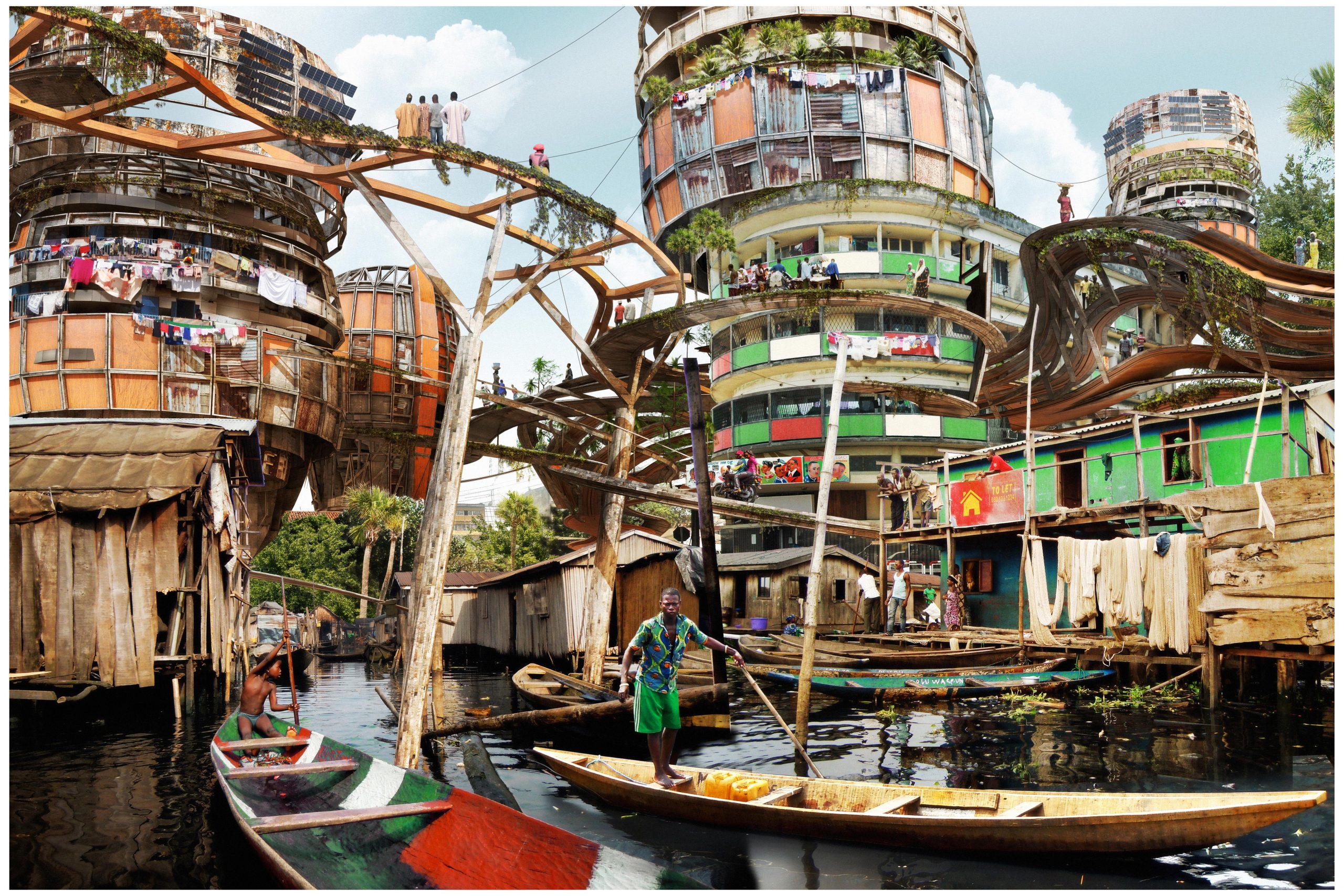
This week, the Museum of Design in Atlanta unveils “Close to the Edge: The Birth of Hip-Hop Architecture,” a survey of temporal, reactive, and improvisational architecture, designed by scholar and architect Sekou Cooke.
“Hip-hop architecture had been talked about and debated at Cornell University in the mid-90s, after the legendary thesis project by Nathan Williams,” Cooke told Artnet News. The curator has since written a book on the topic, hosted a symposium, and organized this touring show. “Close to the Edge” outlines the movement’s 25-year rise through facade studies, urban development proposals, installation strategies, and building designs.
While on the surface hip-hop and architecture might appear at odds—one celebrates spontaneity, the other relies on structure—the combination of the two is an “anti-style” design movement that riffs off the music’s playful pastimes: deejaying, emceeing, b-boy dancing, and graffiti.
Sekou Cooke. Photo: Michael Barletta. Courtesy of Sekou Cooke Studio
Cooke has identified three categories that are particularly important to the movement: Identity, Process, and Image. Together, he said, these categories hold space for “designers with deeply rooted, hip-hop identities, those committed to processes extracted from hip-hop elements, and reflecting an image that may somehow be tied back to aspects of public consciousness attributed to hip-hop.”
Designing the show specifically for MODA’s sprawling galleries, Cooke sought to create intimacy through wall text and sonic environments. He met the museum’s mandate for interactivity with a turntable feature “where visitors can manipulate 3D prints in action.” He has also expanded the traveling show’s “If Ya Don’t Know…” glossary wall with “historical images of hip-hop’s elements, grounding them back to a Southern context.”
Altogether, the show asks how call and response can become an architectural imperative, in the same way hip-hop and its entourage activities are all based on flow.
“Close to the Edge: The Birth of Hip Hop Architecture” is on view October 15 through January 29, 2023 at the Museum of Design in Atlanta. Take a sneak peek of the exhibition below.
“Close to the Edge” at the Center for Architecture in New York, late 2018. Photo: Erik Bardin, courtesy of MODA.
Ujijji Davis, The Bottega project (2015). Photo: courtesy of Sekou Cooke Studio.
Boris Delta Tellegen, Barlagelaan (2011). Photo: courtesy of Sekou Cooke Studio.
Wildstyle, a proposed new design for the Museum of Hip Hop in Brooklyn, New York by University of Wisconsin-Milwaukee students Jessie Christensen, Kate Greskoviak, Claudia Lu, and Michael Muchmore. Photo: courtesy of MODA.
ITN Architects, construction photograph from “The End to End Building” in Melbourne, Australia (2015). Photo: courtesy of MODA.
A view of City Thread by design duo SPORTS (Molly Hunker, Greg Corso), in Chattanooga, Tennessee (2018). Photo: courtesy of MODA.
Studio Malka Architecture, Bow-House in Heerlen, Netherlands (2014). Photo: courtesy of MODA.
Lauren Halsey, Crenshaw District Hieroglyph Project (2016). Photo: courtesy of the artist and David Kordansky Gallery.
4RM+ULA Architects, exterior perspective rendering of JXTA Arts Center in Saint Paul, Minnesota (2010). Photo: courtesy of MODA.
Maurer United Architects, Zedzbeton 3.0, with Zedz, project poster (2002). Photo: courtesy of MODA.